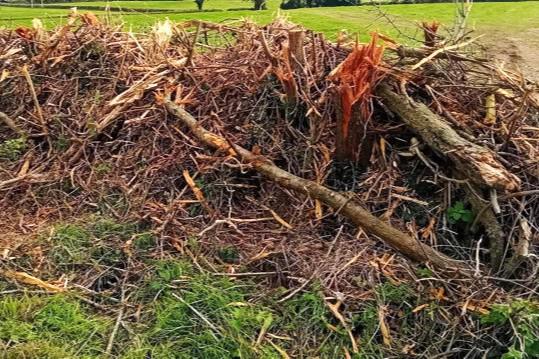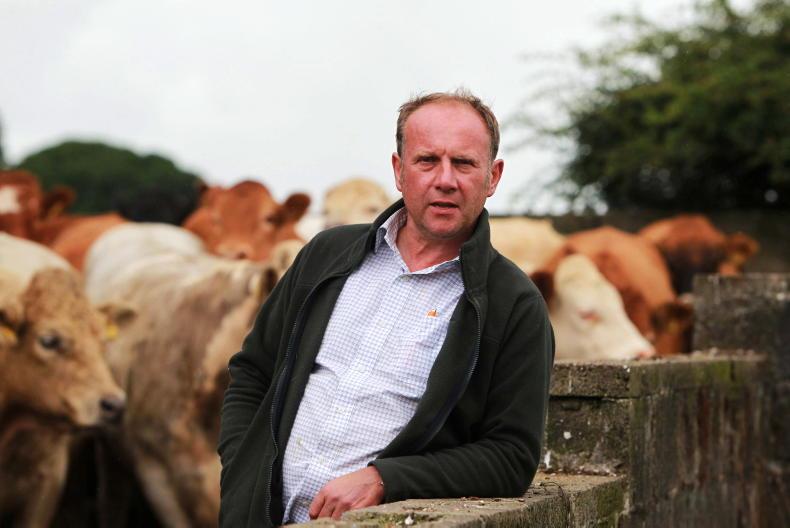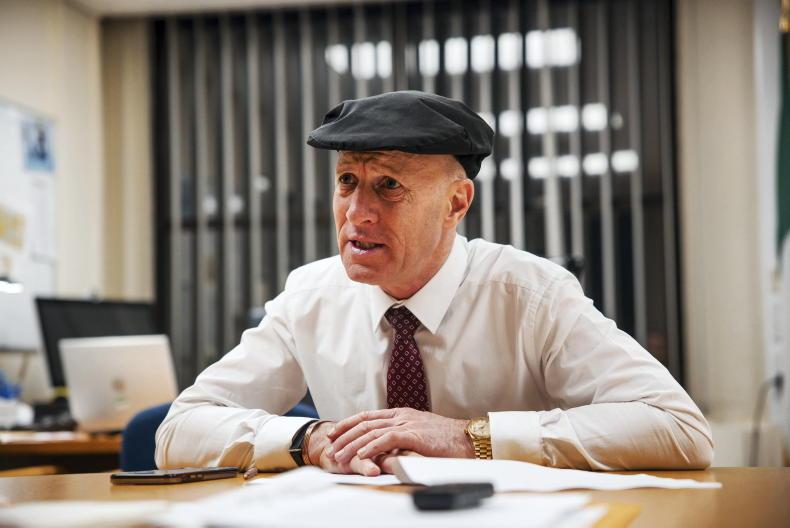Farmers cannot be divided into one group of intensive farmers focusing exclusively on the production of food and another group of more extensive farmers farming for nature if real progress is to be seen in enhancing biodiversity, according to Minister of State at the Department of Agriculture Pippa Hackett.
Speaking at the National Biodiversity Conference, Minister Hackett said that a whole-farm approach to biodiversity would be needed for meaningful results to be achieved in the implementation of nature restoration measures, rather than an approach of “tinkering around the edges” of fields.
The minister also stated that the “vast majority of farmers want to get involved” in reversing biodiversity trends, which have been in a state of decline for some time.
“Within agriculture, it is clear that our farmers and food producers have a vital role to play in our national response to the biodiversity crisis and agriculture accounts for more than 60% of Ireland’s land area,” commented Minister Hackett in her address to the conference.
“The whole-farm approach should not compartmentalise biodiversity to a strip or a corner of a filed, nor should we go down the road of a split within agriculture whereby one cohort of farmers farms exclusively for nature and another exclusively for food production – they must go hand in hand.
“We cannot afford to adopt a twin-track approach, with only certain cohorts of farmers incentivised to farm for nature.
"If we are to tackle the biodiversity crisis, we will have to bring all farms with us. From the most intensive to the most extensive and every farmer in between,” she remarked.
Forestry a ‘vital’ policy area
Minister Hackett, who has ministerial responsibility for both forestry and biodiversity, also addressed the need for policy reform within the forestry sector.
She recognised that previous forestry policies had detrimental impacts on biodiversity in instances where planning had failed to appropriately take into account the location of new forestry plantings or the inclusion of nature-friendly management practices in management plans.
“Within forestry, it is vital that we get our policy decisions right so that our forests can deliver for biodiversity,” the conference heard.
The aims of the new forestry programme will be multi-faceted and the programme will seek to capitalise on the many benefits of forestry – promoting and protecting biodiversity both through newly-created and existing forests will be a part of that strategy and programme.
“We know that forests can contribute to nature, but we also know that forests planted in the past that were poorly sited or poorly managed have had devastating and adverse effects on biodiversity,” said Minister Hackett.
The minister responded to a question posed on the planting of forestry in specific habitats where farmland has a high biodiversity importance under its current land use.
“That’s a very specific question and it is certainly something we do have to address, because we can’t afford to lose any more high nature value farmland to trees,” she said.
Read more
Government acting on commitments for biodiversity protection policies - Noonan
Results-based farm schemes ‘way forward’ for nature - Taoiseach
EU nature restoration law to cost Ireland €134m yearly
Farmers cannot be divided into one group of intensive farmers focusing exclusively on the production of food and another group of more extensive farmers farming for nature if real progress is to be seen in enhancing biodiversity, according to Minister of State at the Department of Agriculture Pippa Hackett.
Speaking at the National Biodiversity Conference, Minister Hackett said that a whole-farm approach to biodiversity would be needed for meaningful results to be achieved in the implementation of nature restoration measures, rather than an approach of “tinkering around the edges” of fields.
The minister also stated that the “vast majority of farmers want to get involved” in reversing biodiversity trends, which have been in a state of decline for some time.
“Within agriculture, it is clear that our farmers and food producers have a vital role to play in our national response to the biodiversity crisis and agriculture accounts for more than 60% of Ireland’s land area,” commented Minister Hackett in her address to the conference.
“The whole-farm approach should not compartmentalise biodiversity to a strip or a corner of a filed, nor should we go down the road of a split within agriculture whereby one cohort of farmers farms exclusively for nature and another exclusively for food production – they must go hand in hand.
“We cannot afford to adopt a twin-track approach, with only certain cohorts of farmers incentivised to farm for nature.
"If we are to tackle the biodiversity crisis, we will have to bring all farms with us. From the most intensive to the most extensive and every farmer in between,” she remarked.
Forestry a ‘vital’ policy area
Minister Hackett, who has ministerial responsibility for both forestry and biodiversity, also addressed the need for policy reform within the forestry sector.
She recognised that previous forestry policies had detrimental impacts on biodiversity in instances where planning had failed to appropriately take into account the location of new forestry plantings or the inclusion of nature-friendly management practices in management plans.
“Within forestry, it is vital that we get our policy decisions right so that our forests can deliver for biodiversity,” the conference heard.
The aims of the new forestry programme will be multi-faceted and the programme will seek to capitalise on the many benefits of forestry – promoting and protecting biodiversity both through newly-created and existing forests will be a part of that strategy and programme.
“We know that forests can contribute to nature, but we also know that forests planted in the past that were poorly sited or poorly managed have had devastating and adverse effects on biodiversity,” said Minister Hackett.
The minister responded to a question posed on the planting of forestry in specific habitats where farmland has a high biodiversity importance under its current land use.
“That’s a very specific question and it is certainly something we do have to address, because we can’t afford to lose any more high nature value farmland to trees,” she said.
Read more
Government acting on commitments for biodiversity protection policies - Noonan
Results-based farm schemes ‘way forward’ for nature - Taoiseach
EU nature restoration law to cost Ireland €134m yearly









SHARING OPTIONS